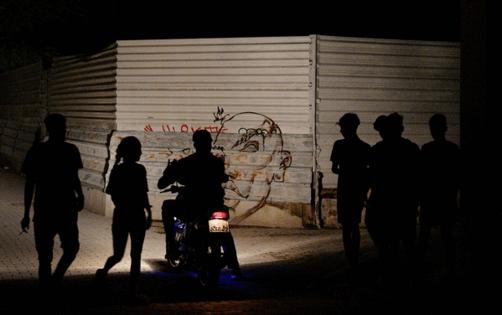As Hurricane Rafael slams into Cuba, the island's power grid is knocked out once more
Published in News & Features
Less than three weeks after Cuba lost all electrical service for several days, Hurricane Rafael’s strong winds knocked out the country’s electrical grid again Wednesday afternoon, leaving the island without service, the state electricity company said.
The state-owned Electric Union said that the strong winds “caused the disconnection of the National Electric System” at 2:48 p.m. and that contingency protocols were in place. Previously, the company said it had planned to gradually disconnect some circuits in the areas affected by the storm to avoid failures.
Rafael rapidly intensified to a major Category 3 hurricane in the afternoon and was already pounding southwestern Cuba and the Isle of Youth with sustained winds of 110 mph and even higher gusts.
At 5 pm, Rafael as located just 30 miles south-southwest of Havana and had made landfall on the southern coast of Artemisa province. The National Hurricane Center in Miami warned that Rafael could also bring life-threatening storm surges and flash flooding to the area.
Hurricane Rafael hits Cuba when the island is still grappling with the devastation left by Hurricane Oscar in the eastern province of Guantánamo, where eight people died, two are still missing and 20,000 homes were damaged.
This is not the first time a hurricane has caused the entire electrical system to collapse. Hurricane Ian did the same in 2022, plunging Cuba into darkness for days, as it crossed the western tip of the island on its way into the Gulf of Mexico.
Wednesday’s total blackout follows a similar episode last month when the entire country lost power for several days, triggered by a failure at a major thermoelectric plant on Oct. 18 that brought down the country’s ailing electrical infrastructure. Just a few hours earlier, the government had declared an energy emergency due to a lack of oil and generating capacity that were causing long electricity cuts and had paralyzed the economy.
While the state electrical company eventually reconnected the grid, and allied countries such as Mexico sent some oil to the island, the blackouts have continued for more than 10 hours daily in some places.
Experts said the problem will not be resolved without significant investment in modernizing the country’s old power stations and infrastructure. The government, which is highly indebted and runs an inefficient centrally planned economy, is bankrupt and does not have money to buy oil on the international market.
Ahead of Hurricane Rafael, Cuban state media made a point of showing that authorities were well prepared to protect the population and assist in the storm’s aftermath, after the government faced widespread criticism for failing to evacuate residents in areas prone to flooding in Guantánamo and for a delayed response to send aid.
State media showed photos of military vehicles and officers ready to assist and government officials overseeing the preparations. Authorities ordered the evacuation of 50,000 people in Havana, 13,000 in Villa Clara province and 11,000 in Sancti Spíritus, and people went mostly to the homes of friends and relatives.
©2024 Miami Herald. Visit at miamiherald.com. Distributed by Tribune Content Agency, LLC.







Comments